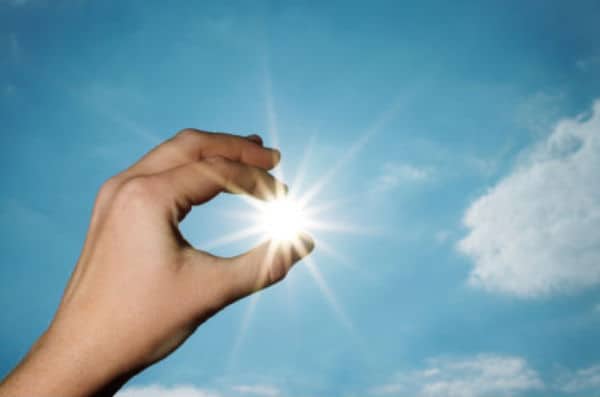Vitamins are very essential energy elements required by your body. They are one of the most vital components needed for the maintenance of a good health. They are available in different forms. Out of these forms, vitamin D is a very important fat-soluble vitamin that helps in the process of absorption and also in the metabolism of calcium and phosphorous. It has got various benefits. It helps in keeping your bones strong and healthy and so it is very much needed by children to ensure proper growth of the bones. It also helps in reducing the risk of osteoporosis and certain forms of cancer. Moreover, it can protect you from colds and also helps in fighting depression. Sunlight helps in the direct synthesis of vitamin D. But if most of the time you stay indoors then you may not be able to get the required amount of this vitamin. Then you can get it from various other sources. Here is a list of different sources from which you can get vitamin D.
1. Sunlight: Sunlight is a major source of vitamin D. A sun exposure of about 20-25 minutes is enough to get your daily dose of vitamin D. But it is risky because some harmful rays of the sun can cause skin-cancer. Moreover it cannot be easily absorbed by old people and people with a dark skin tone.
2. Fatty fish: Salmon, mackerel, trout, eel and tuna are very good sources of vitamin D. Again by consuming these fatty fishes you can also get the required omega-3 fatty acids which are essential for a healthy heart.
3. Canned tuna fish: Fresh fishes are not the only sources of vitamin D. Even canned fishes like tuna and sardines contain vitamin D. They have a long shelf life and are cheaper than the fresh fish. Canned tuna contains about 50 IUs of vitamin D per 4 ounces.
4. Certain mushrooms: Certain mushrooms when exposed to ultraviolet light can also synthesize vitamin D like human beings. Dole’s Portobello Mushrooms are an excellent source of vitamin D and 1 cup of diced mushrooms contains about 400 IUs of vitamin D.
5. Fortified milk: It is a great source of vitamin D. In general, a glass of milk (8-ounce) contains about 100 IUs of vitamin D and yoghurt (about 6-ounce) contains 80 IUs. Certain fortified soy and rice milks are also a good source of vitamin D.
6. Some types of orange juice: If you don’t like dairy products then you can get your dose of vitamin D from some fortified orange juices that are nowadays available in the market. A glass of fortified orange juice (8-ounce) can supply you with about 100 IUs of vitamin D. This quantity generally differs in different brands.
7. Supplements: Nutritional supplements that are available in the market can also provide you with the necessary dose of the vitamin. But always remember one thing that overdoses of vitamin D can be toxic. Therefore, it is always recommended to take a doctor’s advice before starting any supplement.
8. Egg yolks: Eggs are easily available and the egg yolks are an excellent source of vitamin D. They can be consumed anytime – breakfast, lunch or dinner. Moreover they form an important part of many desserts. And a single yolk can give you about 40 IUs of Vitamin D.
But eggs are very rich in cholesterol content. A single egg contains about 200 milligrams of harmful cholesterol and so you should not make it the only source of Vitamin D. Try to consume the other sources as well.
9. Fortified cereal: Nowadays, most of the cereals available in the market are loaded with many nutritional elements including vitamin D. So, you can also get your necessary vitamins from these crunchy cereals.
10. Beef liver: Cooked beef liver of about 3.5-ounce contains about 50 IUs of vitamin D in addition to other essential dietary components like protein iron and vitamin A. But beef liver contains very high quantities of cholesterol and hence fatty fish is a better option for heart patients.
11. Cod liver oil: A single tablespoon of cod liver oil contains about 1,300 IUs of vitamin D which is double the recommended dose of 600 IUs per day. It is available in capsule form and in different flavors like mint, citrus etc.
12. Ultraviolet lamps and bulbs: Ultraviolet-emitting lamps and bulbs are a good alternative source of vitamin D for the people who are at higher risk of vitamin D deficiency. But these lights are also risky and can cause skin-cancer and so should be used only on a doctor’s recommendation.




